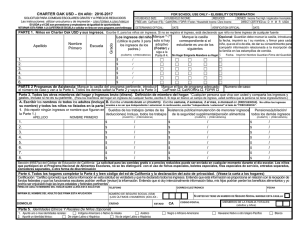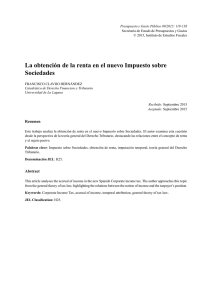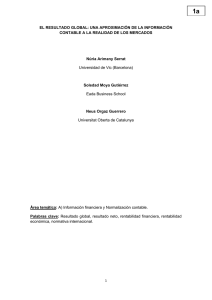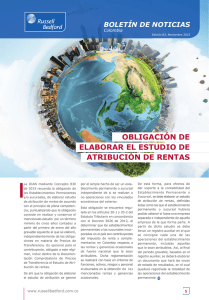José Andrés Gabardo. "Social Class (1988-2015) to
Anuncio
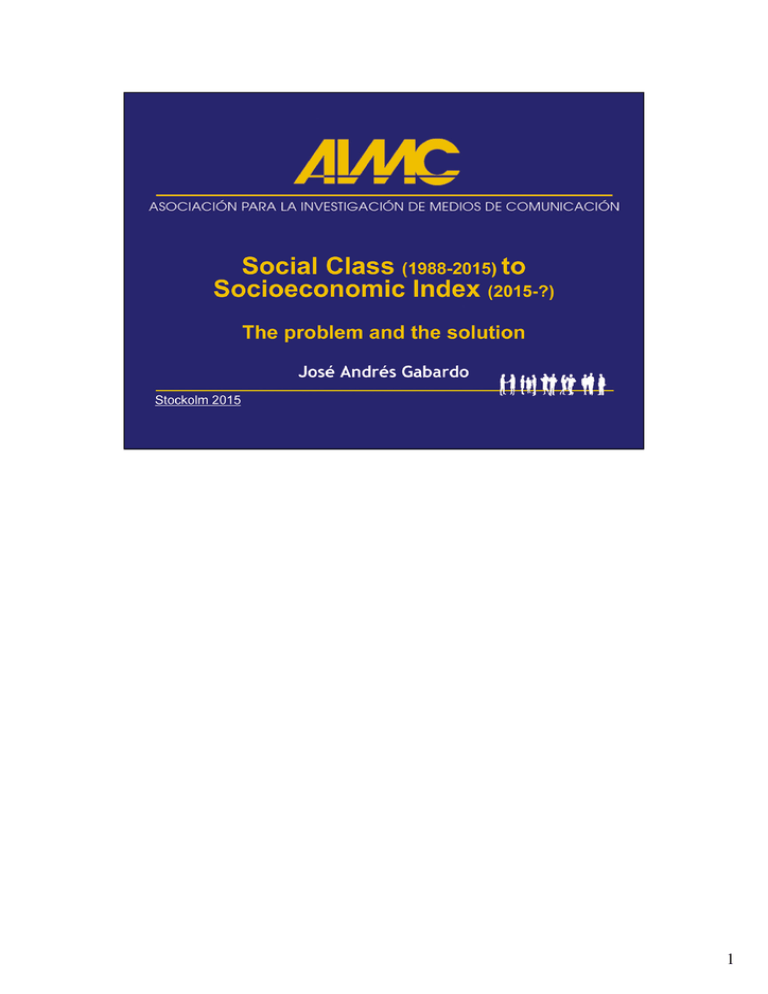
1 La evolución de la clase social en España ha sido de continuo crecimiento de las clases más altas, lo que estaría muy bien si no fuese por los datos negativos de la economía In the last years the social class in Spain has shown a continuous 2 growth of the upper classes. This development would be very good if it weren´t for the negative figures of the spanish economy 2 El PIB está todavía un 4.2% por debajo del nivel de 2008, GDP is still a 4.2% below the level of 2008, 3 Y el desempleo afecta aún al 23,8% de la población, mas de 5.400.000 de personas and unemployment affects even to 23.8% of the active population, that is more than 5.400.000 people 4 Pero esta tendencia no es nueva. En este gráfico podemos hacer dos observaciones importantes: But this tendency it´s not a new one. In this chart we can have to make two remarkable observations: 5 Desde su origen hasta ahora los grupos superiores de la clase social no han dejado de crecer In fhe first place, from its implementation the Social Class Index has been reflecting a continuous growth of the upper classes 6 Y los segmentos más bajos no han dejado de disminuir On the other hand the lower segments have been decreasing continuously 7 La clasificación anterior estaba basada en dos variables referidas al sustentador principal: su Nivel Educativo y la categoría del trabajo The previous classification was based on two variables related to the household´s principal income earner: their level of education and category of employment 8 This is the chart that we have been using to obtain the Social Class affiliations • In columns we represent the eight categories of the Studies of the main income earner • In rows we can see the 24 categories of the occupation of the same individual 9 El índice tiene una gran dependencia del nivel de estudios y en los últimos 27 años ha habido muchos cambios: The Social Class Index depends heavily on the level of studies and in the past 27 years there have been many changes: 10 La población con grado universitario ha crecido desde el 9% al 20,4% en los últimos 25 años The population with a university degree has grown from 9% to 20.4% in the last 25 years 11 Y la población sin estudios ha disminuido del 19,3% al 3,5%. En todo este tiempo la definición de la clase social no se ha modificado And the population without studies has declined from 19.3% to 3.5% in this period In this 25 years the definition of the Social Classes Index has not been modified 12 Necesitamos crear un nuevo índice y, tras numerosas reuniones entre el equipo ejecutivo de AIMC, representantes del mercado de medios y de las principales compañias de estudios de mercado (ANEIMO) , se decide basarlo en los ingresos del hogar We needed to create a new index and, after several meetings between the Executive Staff of AIMC and the representants of principal Market Research Companies (ANEIMO), it was decided to base it on the household income 13 Los ingresos del hogar se estan recogiendo en el cuestionario de EGM desde 1996, pero esta pregunta obtiene una baja tasa de respuesta del 52%. La estimación del estrevistador resuelve este problema El entrevistador estima los ingresos del hogar basandose en la observación de las condiciones de su residencia Además necesitamos encontrar otro sistema para estimar esta variable en otro tipo de entrevistas (CATI por teléfono o CAWI, por Internet) The household income are been collected in the EGM questionnaire since 1996, but this question obtains a low response rate of 52% The estimation of the interviewer is used to solve this Interviewers estimate household income based on their observation of the conditions of the home 14 In addition to that we have to point out that we need to find a new way to estimate this variable in other types of interviewees (CATI, by phone, or CAWI, by internet) 14 Analizamos la correlación entre los ingresos del hogar y diferentes variables de EGM y las que resultaron mejor son: El cruce de nivel de educación y categoría de trabajo del sustentador principal, la actividad (Activo, Parado, Retirado e Inactivo) y la relación entre tamaño del hogar y personas con ingresos en el hogar. Con estas variables somos capaces de explicar un 70% de la variabilidad de los ingresos del hogar. Whenever we don´t have information about the household income, this is the process created to determine it: • We analyze the correlation between household income and different variables of EGM to determine which are the appropriate ones: • The composite of Educational Level and category of main income earner -distinguishing between Working, unemployed, retired and inactive-, • and the relationship between the size of the home and people with incomes at home. With these variables, we are able to explain 70% of the 15 variability of the household income 15 Hemos cambiado el cruce entre nivel educativo y categoría del trabajo del sustentador principal de forma que está directamente relacionado con el promedio de ingresos de cada celda. Todos los hogares de nivel 1 tienen ingresos promedio superiores a los de nivel 2 y estos superan a todos los de nivel 3, etc.. We have changed the composite between education level and category of the work of the main income earner so that it is directly related to the average income of the household in each cell All level 1 households have average incomes exceeding the level 2 and outweighing all those at level 3, etc. 16 Esta es la formula obtenida de la regresión. This is the formula obtained from regression. 17 Y estos los 7 cortes que se han acordado con el mercado, donde IA1 es el grupo de mayores ingresos y IE2 el grupo de menores ingresos And these are the 7 cuts which have been agreed with the market, where IA1 is the group of higher incomes and IE2 the lowest income group. 18 19 Y la prueba de fuego: El Índice socioeconómico sí que se ha comportado en los años de crisis como uno espera que lo haga, disminuyendo los individuos en los grupos superiores y aumentando en los grupos inferiores And the acid test: the new index, the socio-economic index, behaves in years of crisis as one would expect, decreasing the figures of individuals in higher groups and increasing the ones in the lower 20 En abril de esta año hemos publicado los primeros datos oficiales del nuevo índice. ¿Cuanto sobrevivira el nuevo índice después de su “botadura”? Esperamos que más que el Vasa In April of this year we have published the first official data for the new index How long will the new index survive after its “launching”? We hope longer than the Vasa 21

